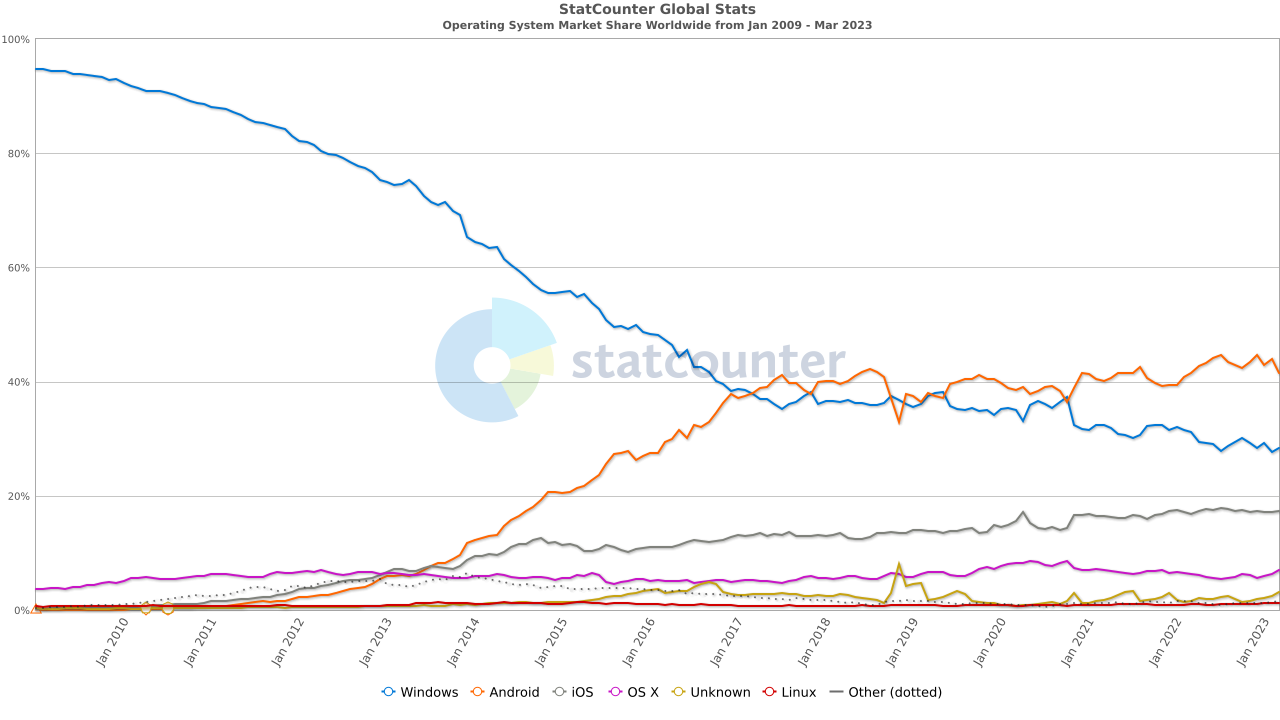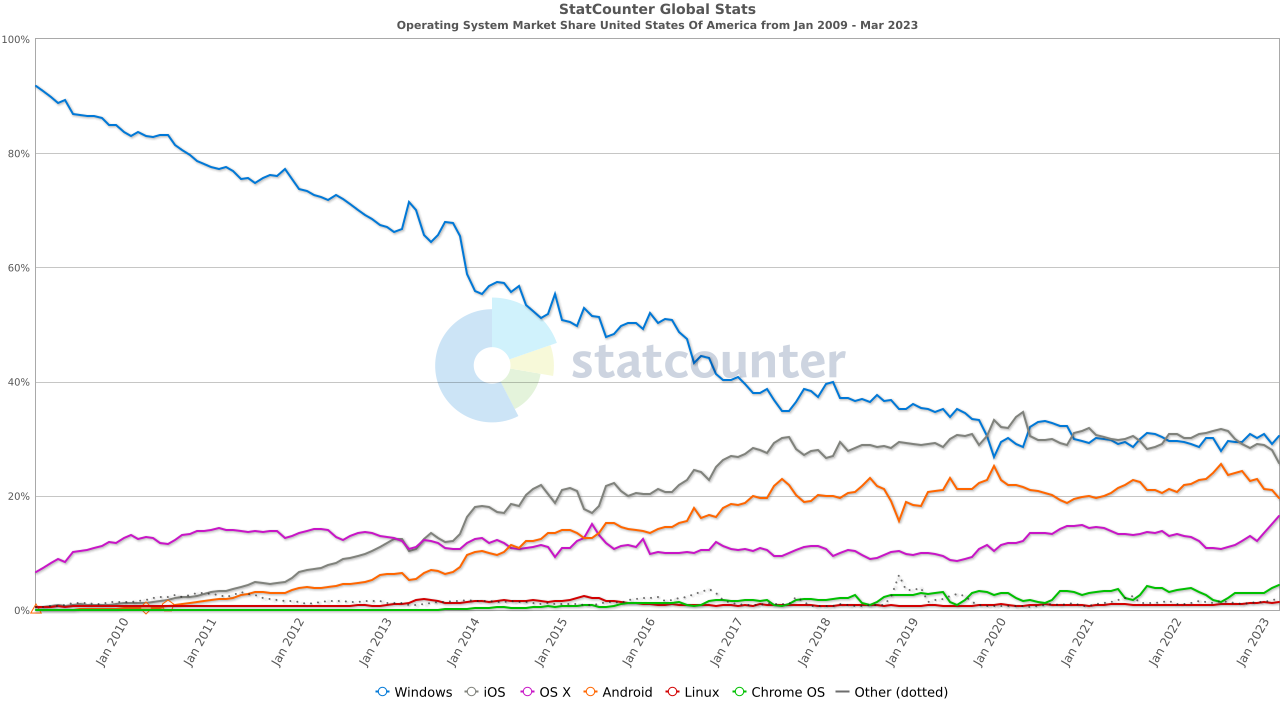By John Gruber

Jiiiii — All your anime stream schedules in one place.
Browser and OS Market Share Trends in the Mobile Age
Tuesday, 2 May 2023
Joshua Benton on Twitter, linking to Statcounter’s U.S. browser share data for March:
For the first time ever, Safari has more than 20% of desktop browser share in the U.S.
Since last June, Chrome is down 6% (61.35% to 55.28%), while Safari is up by a similar amount (15.58% to 22.3%).
Seems driven entirely by increased Mac market share. Over the same span, Windows is down 14% (67.57% to 53.43%) and macOS is up 6% (24.27% to 31.34%). ChromeOS went from 3.75% to 8.47% (though the school year makes that comp a bit unfair).
Statcounter’s latest global numbers:
- Chrome: 66.1%
- Safari: 11.9%
- Edge: 11%
- Firefox: 5.7%
- Opera: 3.1%
Looking at the global chart, Chrome seems to be holding steady in the desktop market over the last year, but Safari does show an uptick from about 9.5 to just under 11 percent. As Benton points out, the most striking thing in Statcounter’s report is the decline in Windows’s desktop OS share over the last year, both globally and in the U.S. I suspect Windows is losing share to mobile browsing just as much as or more than it is to MacOS and ChromeOS. Back when Windows had over 90 percent market share, a huge chunk of that was people who didn’t really choose a Windows PC because of Windows, but who just wanted a “computer”. They took the default, and the default computer ran Windows.
Nowadays, Windows still gets most of the default desktop market (although it seem ChromeOS continues to eat into that, especially in K-12 education). But for more and more people, their default “computer” is their phone. They might have a PC, but they use it less and less.
Which brings me to another real eye-opener: Statcounter’s OS market share numbers — across all devices, desktop and mobile — from 2009 until now.
Globally, Windows was surpassed by Android back in 2017. The decline in Windows’s dominance has been precipitous: in 2009 Statcounter pegged its share at 95 percent; today it’s 28 percent. In the U.S., Windows is effectively neck-and-neck with iOS, each hovering around 30 percent for the last few years. It doesn’t seem outlandish to project that Mac and iOS, combined, might soon surpass Windows and Android combined in Statcounter’s share numbers for the U.S.
The Mac, on the other hand, is clearly seeing impressive market share growth. We all kind of knew this was true from the Mac revenue numbers Apple reports each quarter, but Statcounter’s data backs up Apple’s claims that the Mac continues to gain new users. And that in turn leads to more desktop Safari users — even though recent switchers strike me as among the most likely Mac users to use Chrome, which they’re likely familiar with. But if desktop Safari usage share is growing, it must mean Mac usage is growing.
The rise of iOS and Android as humanity’s primary computing platforms has obliterated Windows’s decades-long hegemony. To be fair, when your usage share was at one time 95 percent of all web browsing, there’s nowhere to go but down. But today, Windows is just one of four major platforms — and is the only one of the four that is in obvious decline, both in usage and relevance. The Mac, on the other hand, has seemingly been bolstered by the rise of the iPhone. We talked a lot about the “halo effect” of the iPod on Mac sales in the mid-2000s, but it’s more true today with the iPhone and iPad. Mac unit sales are up and its share of desktop computing is way up. People who don’t care about desktop computing are just using their phones and tablets for everything; people who do care are more likely than ever to be using a Mac.
One more nugget, just for kicks — U.S. and worldwide numbers for iOS and Android in the mobile market:
| U.S. | Global | |
|---|---|---|
| iOS | 60 | 30 |
| Android | 40 | 69 |
It’s also worth noting on the charts above that in hindsight, it wasn’t clear that mobile browsing would surpass desktop browsing until 2013 or 2014 — six or seven years after the debut of the iPhone. That’s a timeframe worth keeping in mind for — oh, just to pick a random up-and-coming product category — AR/VR headsets. The iPhone did change everything, but it took a while to show it outside the enthusiast / early-adopter market.


